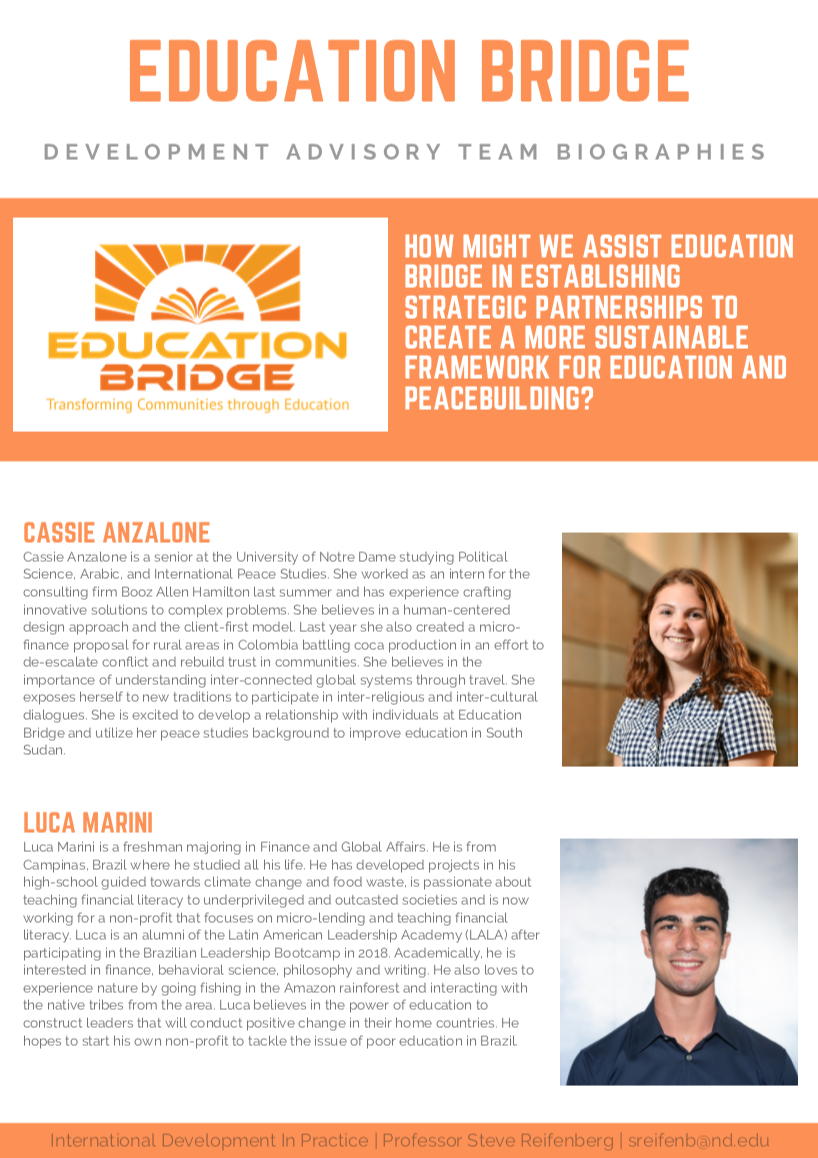Project Background:
A major component of both International Development in Practice I & II revolves around the Development Advisory Teams (DATs), where teams of students work long-distance with an international development organization client that has identified a specific problem or opportunity. As part of this client-based project, students work with a specific organization and provide recommendations responding to questions or issues identified by their client organization. Some students have had the opportunity to travel and work with their organization in the field or present their final recommendations in person to their client organization. Former ND students from the class have become DAT clients as well. Since the fall 2013, students have worked on 66 Development Advisory Teams with 36 different organizations, in 20 counties.
Definition of Opportunity:
While organizations are given the opportunity immediately after the DAT project to evaluate the deliverable the students have produced, there has never been any longer term analysis of the impact of the DAT projects on the problem, the organization or the students involved. This project will allow a DAT to use a mixed methods approach to engage the partner organizations and ND graduates to assess longer term implications and impact of this work.
What does success look like?
It is hoped that the final project will effectively assess the longer-term impact on DAT approach on the problems addressed, the organizational implications, and impact on students. It is meant to be forward looking in assessing what has worked well in this DAT process, and what can be improved in the future. Ideally, this review might also lead to a publication about the approach, pedagogy, and/or impact of this kind of work.
Meet the Team:













